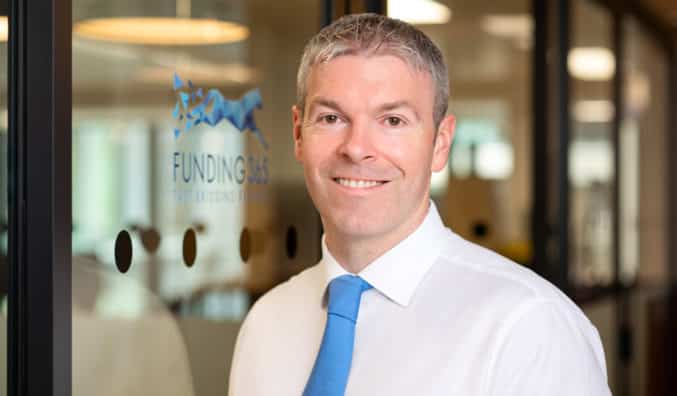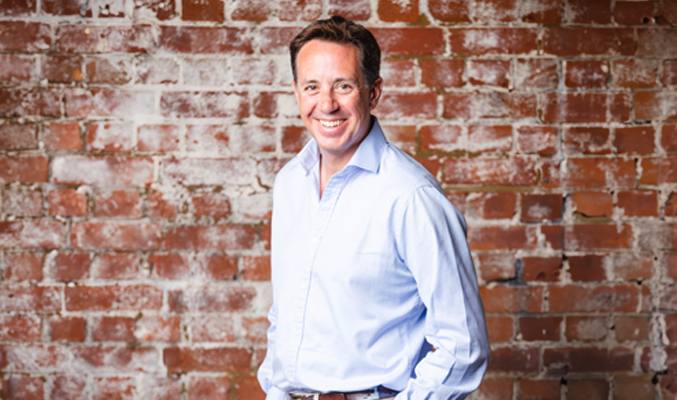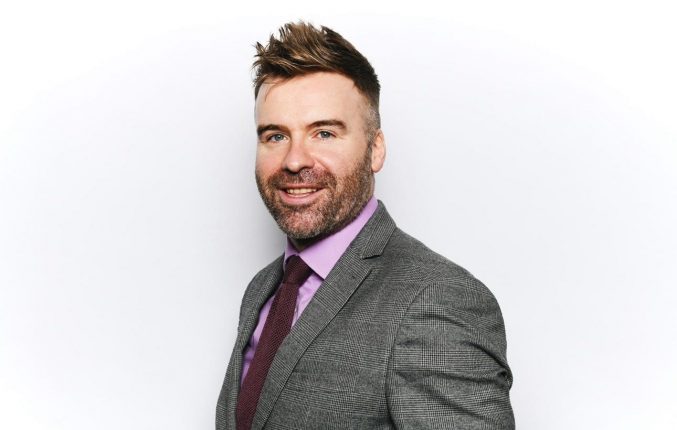‘Think bigger picture – don’t rely on anyone apart from yourself for your own professional journey’
By Tony Sanchez

In our latest Women in Finance Interview, Tony Sanchez speaks to Miranda Khadr an experienced financial adviser with a demonstrated history of working in the debt structuring and loan industry.
Miranda is CEO of Yellow Stone Finance brokerage, the Pitch 4 Finance funding platform, and Pitch Black Technology IT solutions. She was previously a founder of The Business & Commercial Finance Club.
What brought you into financial services?
I needed a job while I was at university and wasn’t set on what I wanted to do so I started as a secretary at a Wealth Management company.
You could say I fell into this rather than it being something I’d wanted to do from childhood. But it was a great start in financial services – I started off making tea and coffee and then just tried to learn as much as I could.
It’s this thorough grounding in financial services that has helped to shape Pitch 4 Finance.
We’ve developed a platform specifically to address what people in specialist lending need, using technology. We’re not coming at it as a tech firm looking to get into financial services.
What do you think makes a successful leader? And in particular women leaders?
I think, more often than not, it’s resilience – having a vision for yourself and your team and sticking to it.
It’s important to give your team a voice but also recognise if you are starting to deviate from your own path.
I read a fascinating quote from Elon Musk where he was asked what he would say to aspiring business owners who needed encouragement or support.
His response was that if you are the type of person that needs encouragement or support don’t become a business owner!
On the surface this might seem a little arrogant, but I think he is just saying, stick to your plan, be confident in your ideas and remember why you did this in the first place.
I think the events of the last year has shown us all how important this focus is, when external influences can be so disruptive
You can only take this approach if you have the support of a committed team, and if you are going to expect to have a team that works hard and puts in the hours, it has to be something that you are willing to do yourself.
You are all in it together. We have an exceptional team and I’m very proud of them.
I think the above is important regardless of your gender.
What are the biggest barriers you have faced in your career in financial services?
There are moments where potentially you might be treated differently as a woman and the odd moment where you feel side-lined or silenced, potentially based on your gender.
I think the key is to carry on executing your plan and proving that your voice is worth hearing. This has certainly improved in our industry and let’s hope this continues.
Sometimes my barriers have been self-inflicted as well as environmental, and so I now make sure I make time to think laterally, work on my plan and ask myself what is working, what isn’t and where I could do better.
I think this approach is important to anyone who runs their own business, which is why I massively believe in technology.
It enables, intermediaries the time they need to focus on their business and their clients.
If you could tell your younger self one thing you know about business now, what would it be?
Think bigger picture – don’t rely on anyone apart from yourself for your own professional journey. Learn, learn, learn and try and remedy things when you get them wrong.
What’s your own personal mantra?
It’s not really a mantra but Rudyard Kipling’s ‘If’ poem is sensational, awe inspiring and probably someone we would all like to be.
What do you think is key for finding a successful work-life balance?
I’m not sure I have mastered this one yet! But I will let you know when I have figured this out.
What’s one key leadership lesson you’ve learned along the way?
Work hard and try and get everyone to work as a team. Always offer help where you can and encourage others to do the same.
What advice do you have for women aiming for leadership positions?
I think my advice is not gender specific. Have your own journey and pursue that yourself.
This could be learning from others or your own research and education but no one else will do it for you.
Also, I think it’s important to look at the feedback you get and analyse if there are things you can do better.
What do you think is holding women back?
I think there is no doubt that juggling a number of roles can be quite challenging and requires a great support system behind you.
There are times when you may feel that you are doing all roles badly and you have to make some time for yourself.
Women previously may have not felt supported to both have a family and run a business. This, combined with potentially not being heard, seen or recognised can maybe be off-putting to women in our industry.
I believe that this is fading out but probably still exists to some degree and for some people it can become disheartening.
You could also argue that it’s not necessarily a reflection of male / female relationships in the workspace, but just that some males are more comfortable with male / male relationships.
Shared interests, conversation points and other social factors could play a part in this and findings indicate that homophilous ties are stronger than opposite sex ties.
Therefore, it is possible to suggest that decisions regarding promotion and career progression could on occasion also be affected by this.
Do you think there is still a glass ceiling?
I think this has been cracked, or at least, it is cracking. We are far closer to changing things for the better, where each and every one of us gets judged on merit and abilities across a whole range of areas.
This is not specific to gender and can exist just as much with regards to sexuality and race.
What are your thoughts on the Women in Finance Charter?
I think the women in Finance Charter is great and recognising women in our industry is hugely important but it’s also important to realise that this cannot be achieved to the detriment of males in our industry.
Everyone should have the same possibilities and opportunities, no one side should have the upper hand.
How do we encourage more women into financial services?
I think this is achieved by giving them fair and equal opportunities to their male counterparts and working out different ways to help both genders during some important life changes like parenting / childcare etc.
Flexibility to both genders is essential when people have growing families or childcare matters to take care of.
The gender pay gap is only second worst to the construction industry. What can organisations do to address this?
Where like for like roles are being carried out by people of similar experience it’s important to ask “is there a discrepancy?”, “if so, why?” and “is the discrepancy fair?”
It’s important to then tackle anything that these questions uncover. Experience may be a differentiator and potential for the future, but gender or race certainly shouldn’t be.










You must be logged in to post a comment.